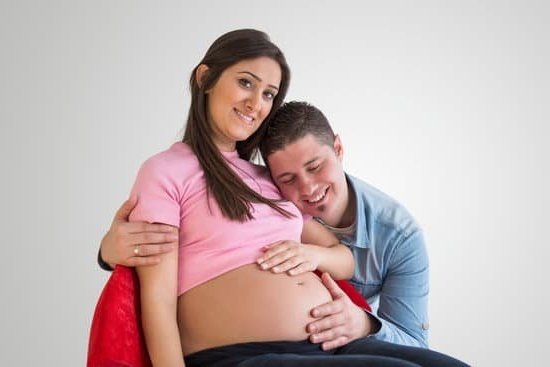Is diarrhea a sign of early pregnancy? Many women wonder about this question as they navigate the early stages of conception. There are numerous myths and misconceptions surrounding early pregnancy symptoms, so it’s important to understand the facts in order to recognize the signs accurately. This article aims to provide insight into the potential relationship between diarrhea and early pregnancy, shedding light on common misconceptions and providing valuable information for those seeking answers.
Digestive issues like diarrhea can often prompt questions about their connection to pregnancy. Understanding the causes of diarrhea and its relationship to overall health is essential in addressing concerns about its possible association with early pregnancy. It is crucial to decipher whether diarrhea is a sign of pregnancy or if there are other underlying factors at play.
As women navigate the journey of early pregnancy, it’s vital for them to be aware of and knowledgeable about common signs and symptoms. In this section, we will explore various early pregnancy symptoms, debunking myths and shedding light on the truth behind what expectant mothers may experience. By understanding these indicators, women can better recognize and manage potential changes in their bodies during the initial stages of pregnancy.
Understanding Diarrhea
Diarrhea is a common ailment that can occur for a variety of reasons, and it is important to understand its causes and effects on overall health. It is often characterized by loose, watery stools and can be accompanied by stomach cramps and discomfort. Diarrhea can be caused by viral or bacterial infections, food intolerances, medications, or underlying health conditions. In some cases, hormonal changes, such as those experienced during early pregnancy, can also contribute to digestive issues.
Causes of Diarrhea
There are several potential causes of diarrhea, including viral gastroenteritis (commonly known as the stomach flu), food poisoning, irritable bowel syndrome (IBS), inflammatory bowel disease (IBD), and lactose intolerance. Stress and anxiety can also trigger diarrhea in some individuals. Additionally, certain medications and travel to foreign countries with different water sources can result in diarrhea due to altered gut flora.
Impact on Overall Health
While diarrhea itself is not typically life-threatening, it can lead to dehydration if not managed properly. Dehydration can be especially concerning for pregnant women as it may pose risks to both the mother and the developing fetus. Symptoms such as dizziness, dry mouth, decreased urine output, and dark-colored urine may indicate dehydration. It is important for individuals experiencing diarrhea to monitor their hydration levels closely and seek medical attention if they are unable to maintain adequate fluid intake.
Relating Diarrhea to Early Pregnancy
Many individuals wonder if experiencing diarrhea is a sign of early pregnancy. While it is not commonly recognized as a classic symptom of pregnancy like morning sickness or fatigue, hormonal changes during early pregnancy can impact the digestive system.
The surge in hormone levels-specifically progesterone-can relax the muscles of the digestive tract, which may lead to more frequent bowel movements or looser stools. As a result of these hormonal shifts, some women may notice an increase in gastrointestinal symptoms such as bloating, constipation or diarrhea in the early stages of pregnancy.
Overall Health During Early Pregnancy
Understanding how diarrhea relates to overall health is crucial during early pregnancy when the body undergoes significant changes. Maintaining proper hydration levels and seeking medical advice when necessary are essential steps for ensuring the well-being of both the expectant mother and her unborn child.
Early Pregnancy Symptoms
During the early stages of pregnancy, a woman’s body goes through various changes as it prepares to nurture a growing fetus. It is common for expectant mothers to experience a range of symptoms, some of which are well-known and others that may come as a surprise. One such symptom that often causes confusion is diarrhea. While many people associate pregnancy with nausea and vomiting, diarrhea is also a potential sign of early pregnancy.
Understanding Common Early Pregnancy Symptoms
Pregnancy symptoms can vary from woman to woman, but there are several common signs that many experience in the early weeks. These include morning sickness, fatigue, breast tenderness, frequent urination, mood swings, and food cravings or aversions. However, less commonly known symptoms such as diarrhea can also occur. This may be puzzling for some individuals who question whether diarrhea is a sign of early pregnancy or something unrelated.
Hormonal Changes and Digestive Issues
The hormonal changes that occur in early pregnancy can have an impact on the digestive system, leading to gastrointestinal symptoms such as bloating, constipation, or diarrhea. The increase in hormones like progesterone can relax the muscles in the intestines, causing food to move more slowly through the digestive tract and potentially resulting in loose stools.
Additionally, the body’s increased blood volume and metabolism during pregnancy can also contribute to changes in bowel movements. As a result, experiencing diarrhea in early pregnancy may be linked to these physiological changes taking place within the body.
It is important for expectant mothers to be aware of these possible digestive issues so that they can differentiate normal symptoms from those that may require medical attention. Understanding the potential causes of diarrhea during early pregnancy can help women navigate this aspect of their gestational period more confidently while ensuring their overall health and wellbeing is prioritized.
Hormonal Changes
During pregnancy, a woman’s body undergoes significant hormonal changes that can have various effects on her overall health. One common and often overlooked impact of these hormonal changes is the potential alteration of the digestive system. This can lead to symptoms such as nausea, vomiting, constipation, and yes, even diarrhea. The question “is diarrhea a sign of early pregnancy?” is commonly asked by women who experience this symptom and wonder if it could be related to their reproductive status.
The hormonal fluctuations that occur during pregnancy, particularly the increase in progesterone levels, can slow down the movement of food through the digestive tract. This slowing effect can sometimes lead to diarrhea as a result of food not being properly digested and absorbed. Additionally, the expansion of the uterus as the pregnancy progresses can also put pressure on the intestines, further contributing to gastrointestinal disturbances such as diarrhea.
It is important for pregnant women experiencing diarrhea to stay hydrated to avoid dehydration and electrolyte imbalances. Eating small, frequent meals rather than large ones may also help manage symptoms. However, if diarrhea persists or is accompanied by other concerning symptoms such as severe abdominal pain or fever, it is crucial to seek medical advice promptly to rule out any potential complications or underlying conditions.
| Effect | Impact |
|---|---|
| Hormonal Changes | Can slow down digestion and lead to diarrhea |
| Dehydration | Important for pregnant women experiencing diarrhea to stay hydrated |
Potential Causes of Diarrhea in Early Pregnancy
When it comes to early pregnancy symptoms, women often wonder, “Is diarrhea a sign of early pregnancy?” It is important to address this question and provide clarity on the topic. Diarrhea can indeed be a symptom of early pregnancy, although it is not as common as nausea or fatigue. Research has shown that hormonal changes and increased progesterone levels can lead to digestive issues in pregnant women, including diarrhea.
Hormonal changes play a significant role in causing diarrhea during early pregnancy. The surge in hormone levels can affect the digestive system, leading to increased bowel movements and diarrhea. Additionally, the body’s response to stress and anxiety during pregnancy can also contribute to gastrointestinal discomfort, potentially resulting in diarrhea. It is essential for expectant mothers to be aware of these potential causes and how they may impact their overall well-being during the early stages of pregnancy.
Furthermore, dietary changes and sensitivities can also trigger diarrhea in pregnant women. The body’s tolerance for certain foods may shift during pregnancy, leading to digestive disturbances such as diarrhea. It is crucial for pregnant individuals to pay attention to their diet and make adjustments if certain foods seem to exacerbate their gastrointestinal symptoms. Staying hydrated and consuming a well-balanced diet can help alleviate digestive issues and promote better overall health during early pregnancy.
| Possible Cause | Impact |
|---|---|
| Hormonal Changes | Affects digestion and leads to increased bowel movements. |
| Dietary Sensitivities | Shifts in food tolerance may trigger digestive disturbances. |
When to Seek Medical Advice
Experiencing diarrhea can be distressing, especially for women who are in the early stages of pregnancy. While it is common to encounter digestive issues due to hormonal changes, it is important to know when diarrhea should be a cause for concern during this crucial time. Understanding the warning signs and seeking medical advice when necessary is essential for ensuring the health and well-being of both the mother and the developing baby.
1. Persistent Diarrhea: If you are experiencing frequent episodes of diarrhea that last for more than a couple of days, it is advisable to consult a healthcare provider. Persistent diarrhea can lead to dehydration, which can pose a risk to both the mother and the baby.
2. Severe Abdominal Pain: Experiencing intense abdominal cramping or pain along with diarrhea could indicate an underlying issue that requires medical attention. It is important not to dismiss these symptoms as they could be indicative of a more serious condition.
3. Blood in Stool: If you notice blood in your stool while experiencing diarrhea, it is crucial to seek immediate medical assistance. Blood in the stool could be a sign of internal bleeding or other serious complications that need prompt evaluation and treatment.
It is always best to err on the side of caution when it comes to health concerns during pregnancy. Any unusual or concerning symptoms should be discussed with a healthcare professional to ensure that appropriate measures are taken to safeguard the health of both mother and baby.
Managing Digestive Issues
During pregnancy, many women experience digestive issues, including diarrhea. While this can be uncomfortable and concerning, there are several ways to manage these symptoms and improve overall digestive health during pregnancy. Here are some tips to alleviate diarrhea and maintain a healthy digestive system:
- Stay Hydrated: Dehydration can exacerbate diarrhea, so it’s important to drink plenty of water throughout the day. In addition to water, electrolyte-replenishing drinks can help restore any nutrients lost due to diarrhea.
- Eat Small, Frequent Meals: Instead of consuming large meals, opt for smaller portions throughout the day. This can help ease the burden on the digestive system and prevent diarrhea triggers.
- Choose Nutrient-Dense Foods: Focus on consuming a variety of nutrient-dense foods such as fruits, vegetables, whole grains, and lean protein. These foods can support overall digestive health and provide essential nutrients for both you and your baby.
In addition to these dietary adjustments, there are other strategies that can help alleviate diarrhea during early pregnancy. Maintaining a regular exercise routine that is safe for pregnancy can aid in digestion and overall well-being. It’s important to consult with a healthcare provider before starting any new exercise regimen while pregnant.
Lastly, incorporating stress-reducing activities such as yoga, meditation, or deep breathing exercises into your daily routine can also have a positive impact on digestive health. High levels of stress can contribute to gastrointestinal issues, so finding ways to manage stress is crucial during pregnancy.
Overall, managing digestive issues such as diarrhea during early pregnancy is possible with mindful dietary choices, regular exercise (with medical approval), and stress-reduction techniques. It’s important for pregnant women experiencing persistent or severe diarrhea to seek medical advice from their healthcare provider for further evaluation and guidance.
Conclusion
In conclusion, while diarrhea is not typically considered a classic sign of early pregnancy, it can occur in some women as the body adjusts to hormonal changes. It is important for women to recognize that each pregnancy is unique and may present with different symptoms. Understanding the potential causes of diarrhea in early pregnancy, such as hormonal changes and dietary factors, can help alleviate concerns and provide reassurance to expectant mothers.
Paying attention to one’s body during early pregnancy is crucial. Whether experiencing gastrointestinal issues or other symptoms, it is essential to communicate any concerns with a healthcare provider. Seeking medical advice when necessary can ensure the proper management of digestive issues and overall well-being during this critical stage of development.
In summary, while diarrhea may or may not be a sign of early pregnancy for some women, it is important to focus on overall health and well-being during this time. By being aware of potential symptoms and seeking appropriate guidance when needed, women can navigate the early stages of pregnancy with confidence and peace of mind.
Frequently Asked Questions
How Early Does Diarrhea Start in Early Pregnancy?
Diarrhea can start in early pregnancy due to the hormonal changes and increased levels of progesterone. These hormonal shifts can affect the digestive system, leading to diarrhea in some pregnant women.
Is Diarrhea a Sign of Early Pregnancy Loss?
Diarrhea alone is not necessarily a sign of early pregnancy loss, also known as miscarriage. However, if diarrhea is accompanied by severe abdominal pain, cramping, or heavy bleeding, it could be indicative of a potential problem and medical attention should be sought.
What Are the Symptoms of Pregnancy at 1 Week?
At 1 week pregnant, which technically means 1 week after conception, most women may not yet experience any noticeable symptoms. Some women may experience mild cramping or light spotting due to implantation. However, each woman’s experience can vary widely at this early stage of pregnancy.

Welcome to my fertility blog. This is a space where I will be sharing my experiences as I navigate through the world of fertility treatments, as well as provide information and resources about fertility and pregnancy.





